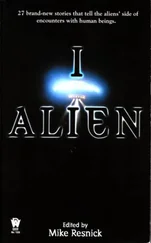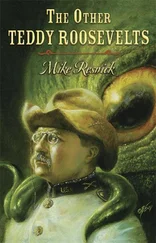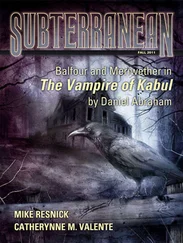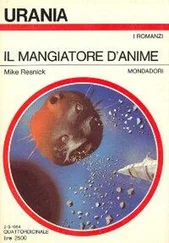Mike Resnick - Birthright
Здесь есть возможность читать онлайн «Mike Resnick - Birthright» весь текст электронной книги совершенно бесплатно (целиком полную версию без сокращений). В некоторых случаях можно слушать аудио, скачать через торрент в формате fb2 и присутствует краткое содержание. Жанр: Старинная литература, на английском языке. Описание произведения, (предисловие) а так же отзывы посетителей доступны на портале библиотеки ЛибКат.
- Название:Birthright
- Автор:
- Жанр:
- Год:неизвестен
- ISBN:нет данных
- Рейтинг книги:4 / 5. Голосов: 1
-
Избранное:Добавить в избранное
- Отзывы:
-
Ваша оценка:
- 80
- 1
- 2
- 3
- 4
- 5
Birthright: краткое содержание, описание и аннотация
Предлагаем к чтению аннотацию, описание, краткое содержание или предисловие (зависит от того, что написал сам автор книги «Birthright»). Если вы не нашли необходимую информацию о книге — напишите в комментариях, мы постараемся отыскать её.
Birthright — читать онлайн бесплатно полную книгу (весь текст) целиком
Ниже представлен текст книги, разбитый по страницам. Система сохранения места последней прочитанной страницы, позволяет с удобством читать онлайн бесплатно книгу «Birthright», без необходимости каждый раз заново искать на чём Вы остановились. Поставьте закладку, и сможете в любой момент перейти на страницу, на которой закончили чтение.
Интервал:
Закладка:
...In a way, the artists can be considered the revolutionaries of the middle Oligarchic period. Literature had just begun to reflect the fact that Man was dominant in the galaxy, and the classics of the previous few centuries had shown him overcoming, in various ways, the many threats posed to his primacy. Now it was the artists who began to buck the government line by finding beauty in alien forms and outrage in alien living conditions, and by showing tolerance of alien ways. They were, in a very real sense, the conscience of Man—and a very lonely conscience at that, distrusted by their own kind and frequently ignored or misunderstood by the very beings they wished to aid. Certainly the foremost writer of the period was Fillard Niis (5427-5510 G.E.), whose immortal cry of outraged conscience, The Steel Boot, sold more than six billion copies and was undoubtedly the most widely read book in human history up to that time... — Man: Twelve Millennia of Achievement ...Of Niis himself, very little is known other than the fact that he was considered to be the greatest author of his time, both in that peculiarly human literary form known as fiction and in the more traditional fields of documentary writing and philosophical essay. Even today, copies of The Steel Boot still exist. What little we know of Niis and of the book's origins are contained in the transcript of an interview made in 5502 G.E. some three decades after the book's first publication... — Origin and History of the Sentient Races , Vol. 8 THORRIN: Good evening, ladies and gentlemen, and welcome to another edition of “Retrospect.” I am your host, Lornath H. Thorrin, and my guest this week is Fillard Niis, the author who achieved literary immortality during his own lifetime with the publication of The Steel Boot. Mr. Niis, for those of you who have been living in some other universe for the past three decades, is the author of nine best-selling novels plus literally hundreds of essays. He ran for the legislature on Earth in 5466, was elected by a narrow margin, and then resigned after claiming that wide-scale corruption made it impossible for him to function efficiently in that capacity. He then moved to the Deluros system, where in 5472 he wrote a book that dwarfed all his other achievements: The Steel Boot. It sold more than a billion copies during its first four years of existence, and is fast approaching the six billion mark, making it the bestselling book in the history of the galaxy. Looking back, what do you suppose accounted for the book's initial success? NIIS: To be honest, Lornath, I wasn't exactly an unknown writer at the time, and as I recall the book was given a pretty large publicity budget, which certainly didn't hurt matters any. However, I think the prime reason was that the book touched the conscience of the human race, a conscience that had been dormant for too long a time. For the past few centuries Man had been concerned only with clawing his way to the top of the galactic heap, to asserting his dominance over the other intelligent races. When The Steel Boot was published, it was time to look around and examine the carnage we'd left in our wake.
THORRIN: As everyone knows, the book concerns the despicable treatment that the various alien races suffered at our hands during our periods of galactic expansion. But not many people know exactly what it was that triggered the writing of the book. Would you care to tell us? NIIS: Certainly. I had just put the finishing touches on A Handful of Dust —which, incidentally, was the last novel I ever wrote—-and felt the need to get away from Deluros, to totally free my mind from my work. I decided to take a vacation to Pollux IV, which was being heralded as one of the better new
resort colonies. Once there, I checked in at the fanciest hotel I could find and spent the next few days
just soaking up sunlight and alcohol. One night, after I had been there a week or so, I decided to take a walk around the city. I was never much for conducted tours, so I just set out on my own. I never had much sense of direction, and I was soon totally lost. I wandered into the alien quarter of the city and suddenly, within sight of the towering peak of my hotel, I found myself surrounded by almost unimaginable squalor and poverty. The living conditions were absolutely shocking. There were corpses littering the street, and garbage was piled up in front of all the dwellings. The water was so foul I could smell it from two hundred meters away. To my untrained eye, I felt that many of the Polluxans were in dire need of medical attention.
When I finally got back to the hotel I found our ambassador-in-residence and complained to her of the outrageous conditions I had seen. In fact, I literally begged her to send a medical team to the alien quarter—after all, the Polluxans were oxygen-breathing humanoids, and I felt that even nonspecialized human medics might be able to alleviate their suffering to some degree. The ambassador replied that the Polluxans were happy the way they were and that it wasn't our business to interfere with them. Her comments were that the Polluxans couldn't ingest pure water, but instead required the numerous minerals that were found in the foul-smelling stuff that came from their lakes. She also stated that, far from neglecting their dead, they were simply unemotional and irreligious, and that the bodies would be carted off and incinerated by the next morning. And she also opined that, since the alien quarter was centuries old, they obviously felt no inclination to repair it or institute a program of sanitation and hygiene—and since Man was a virtual newcomer to the planet, we had no right to impose our values on the native inhabitants.
Her answers made a great deal of sense, but I decided to look into the problem a little further anyway. I discovered that she was correct about the corpses, but that everything else was either a deliberate lie or a gross misinterpretation of the situation. For example, the Polluxans do indeed require certain minerals that are not to be found in pure H2O—but the water they were drinking contained not only the requisite minerals but massive amounts of industrial waste, enough to increase their death rate by three hundred percent. As for the sanitary conditions, they had been placed in what amounted to a reservation, and were not allowed to leave it, even to dump their waste and garbage on an empty plain beyond the city. The only time it got removed was when the stench became so great that it reached the resort area and annoyed the guests. It was then that The Steel Boot began to take shape in my mind. I spent the next year touring a number of planets we had recently assimilated into the Oligarchy, and found conditions deplorable on a great majority of them. Frequently we didn't even know we had harmed the aliens in any way, but that didn't alter the facts. We used populated alien worlds to dump deadly radioactive wastes, to test new weapons of war, to experiment with various ecological systems and mutations. We even had some sentient chlorine and methane breathers in our multi-environmental zoos. Everywhere I looked, Man had ground the dignity and self-respect of intelligent alien races into the dirt. Usually there was no malice intended but occasionally such actions were a result of a carefully thought-out and programmed policy. For example, during the years 5300 through 5500 we signed 10,478 treaties with alien races. Do you know how many we broke? THORRIN: No.
NIIS: All but sixty!
THORRIN: As the author of the best-selling book of all time, what effect did the success of the book have on you personally?
NIIS: First of all, it made me and the next few generations of my family incredibly wealthy. And, to be
honest, I'd have to say that it's secured a place in literary history for me. But it also had some deleterious
Читать дальшеИнтервал:
Закладка:
Похожие книги на «Birthright»
Представляем Вашему вниманию похожие книги на «Birthright» списком для выбора. Мы отобрали схожую по названию и смыслу литературу в надежде предоставить читателям больше вариантов отыскать новые, интересные, ещё непрочитанные произведения.
Обсуждение, отзывы о книге «Birthright» и просто собственные мнения читателей. Оставьте ваши комментарии, напишите, что Вы думаете о произведении, его смысле или главных героях. Укажите что конкретно понравилось, а что нет, и почему Вы так считаете.











